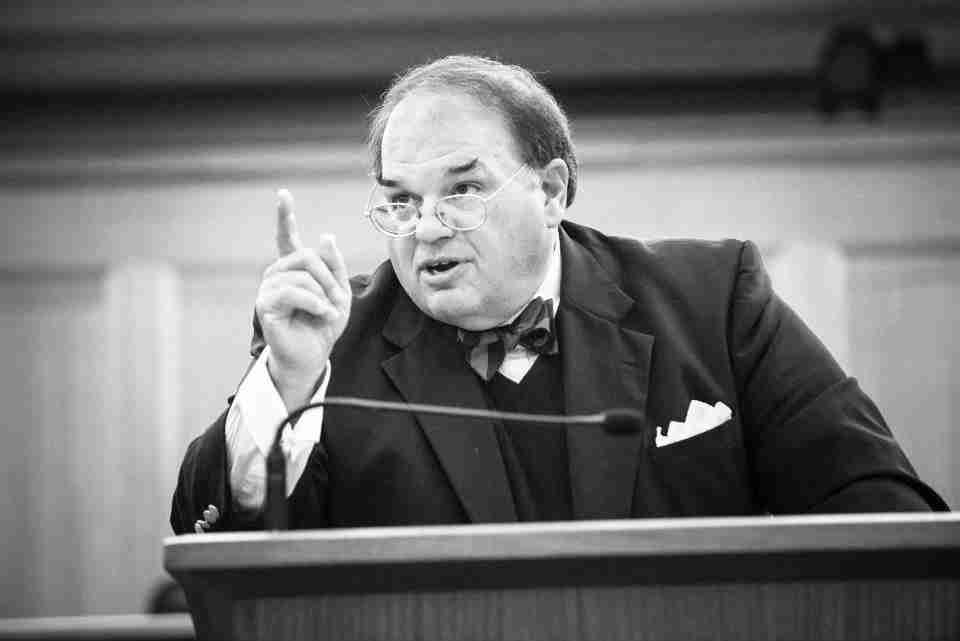MAJOR MERGER: U.S. District Judge Richard Leon approves AT&T-Time Warner merger.
By MARCY GORDON and MAE ANDERSON
AP Business Writer
WASHINGTON (AP) — A federal judge approved the $85 billion mega-merger of AT&T and Time Warner on Tuesday, potentially ushering in a wave of media consolidation while shaping how much consumers pay for streaming TV and movies.
U.S. District Judge Richard Leon greenlit the merger without imposing major conditions as some experts had expected. The Trump Justice Department had sued to block the $85 billion merger, arguing that it would hurt competition in cable and satellite TV and jack up costs to consumers for streaming TV and movies.
Now, the phone and pay-tv giant AT&T will be allowed to absorb the owner of CNN, HBO, the Warner Bros. movie studio, “Game of Thrones,” coveted sports programming and other “must-see” shows. The Justice Department could appeal the ruling, although it said only that it is considering its options.
The ruling could open the floodgates to deal making in the fast-changing worlds of entertainment production and distribution. Major cable, satellite and phone companies are bulking up with purchases of entertainment conglomerates to compete against rivals born on the internet such as Amazon and Google.
Waiting in the wings are potential big billions deals involving 21st Century Fox and Disney, Verizon and CBS, T-Mobile and Sprint. Comcast and Verizon are also jockeying for position in the new landscape. combined AT&T-Time Warner could also get a boost from Monday’s official end of net neutrality —the Obama-era rules that barred broadband and wireless companies from favoring their own services to the detriment of rivals like Netflix. AT&T and Verizon now can give priority on their networks to their own movies and TV shows, while hurting rivals such as Amazon, YouTube and future startups.
“The impact from this decision will have wide reaching ramifications across the telecommunications, media, and tech industry for decades to come,” said GBH Insights analyst Dan Ives.
The merger would combine a company that produces news and entertainment with one that funnels that programming to consumers. AT&T cast it as a necessary step at a time when people spend more time watching video on phones and tablets and less time on traditional live TV on a big screen.
Leon said the government failed to prove that the merger would lead to higher prices and other harm to consumers. Despite Justice Department lawyers taking their “best shot,” he said, their evidence was “too thin a reed for this court to rely on.”
Leon added that he wouldn’t temporarily block the merger for a possible appeal by the government. The “drop dead” deadline for completing the merger is June 21. If it’s not wrapped up by then, either company could walk away, and AT&T would have to pay a $500 million breakup fee.
The ruling was a stinging defeat for the Justice Department. Opposing the merger forced federal antitrust lawyers to argue against standing legal doctrine that favors mergers among companies that don’t compete directly with each other.
Another wild card: When first announced in October 2016 , the deal drew fire from then-candidate Donald Trump, who promised to kill it “because it’s too much concentration of power in the hands of too few.” Trump has also publicly feuded with Time Warner’s CNN, calling it “failing” and a purveyor of “fake news.” The president’s statements didn’t come up during the trial.
John Bergmayer, senior counsel at the consumer group Public Knowledge, said the decision could have long-lasting negative effects thanks to “the many other mergers it will encourage.” In a statement, Bergmayer called for “reinvigorated regulatory oversight of the video marketplace.”
Dallas-based AT&T is a wireless, broadband and satellite behemoth that became the country’s biggest pay-TV provider with its purchase of DirecTV. It claims about 25 million of the 90 million or so U.S. households that are pay-TV customers. AT&T general counsel David McAtee said the company plans to close the deal on or before June 20.













No Comment